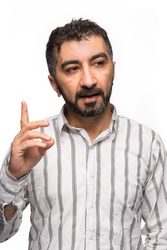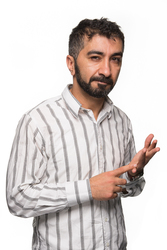Dr. Yavuz Aykan
École des Hautes Études en Sciences Sociales, Paris
Curriculum Vitae
Yavuz Aykan forscht unter anderem auf den Gebieten der islamischen Rechtslehre sowie der mamlukischen und ottomanischen Rechtsgeschichte. Er studierte Geschichte an der Dokuz Eylul Universität in Izmir sowie an der Bogazici Universität in Istanbul. Anschließend erwarb er das Diplôme d'Études Approfondies (D.E.A) am Département d'histoire et civilisations der École des Hautes Études en Sciences Sociales in Paris. Dort promovierte er 2012 mit der Arbeit „Les acteurs de la justice à Amid et dans la province du Diyarbekir d´après les sicil provinciaux du 18e siècle".
Von 2005 bis 2012 war Yavuz Aykan als Lehrbeauftragter am Institut national des langues et des civilisations orientales (INALCO) in Paris sowie am Institut für den Nahen und Mittleren Osten der Ludwig Maximilians Universität in München beschäftigt. Von 2012 bis 2013 war Dr. Aykan Fellow am Internationalen Geisteswissenschaftlichen Kolleg „Arbeit und Lebenslauf in globalgeschichtlicher Perspektive", wo er über die Konstruktion von „Personentypen" in der islamischen Rechtslehre forschte. Von März bis September 2013 war Yavuz Aykan Fellow am Käte Hamburger Kolleg „Recht als Kultur".
Forschungsprojekt
Islamic Jurisprudence as Language of Debate in the Early-modern Ottoman Context
Dr. Yavuz Aykan’s research project traces the genealogies of the larger casuistic legacy that contributed to the construction of the Ottoman Hanafism in the early modern period. By paying particular attention to the issues of Apostasy, Sodomy and the question of Legal Faculty, it explores the ways in which the earlier Hanafi legal traditions (developed in the intellectual circles of the Transoxiana, the Golden Horde and the Greater Syria) were debated, re-interpreted and made operative by the Ottoman Hanafi jurists, in the form of casuistry, so as to constitute an Ottoman Hanafi doxa. Geographically, while the Ottoman Hanafi doxarests upon a larger intellectual tradition, the research project pays particular attention to the legal argumentations of specific “men” articulated in specific “texts” which greatly contributed to the early modern Ottoman sovereignty and state making.
Publikationen
- Property between life and death: A juridical debate over the property of a missing person (gha'ib) in eighteenth-century Ottoman Amid, in: Huri İslamoğlu, Safa Saraçoğlu (Hrsg.): Justice, Statecraft and Law: A New Ottoman Legal History (im Erscheinen).
- Unacknowledged Memory: The nineteenth century Ottoman Empire and the Ambivalence of National Memory in the Turkish Republic, in: Philip Kreyenbroek, Christine Allison (Hrsg.): Discourses of Memory in Iranian Cultures, Harrassowitz: Wiesbaden 2013.
- Comment al-hajj Mehmed s'est-il approprié un terrain récupéré de la décrue du Tigre? Le statut d'une terre vacante devant un tribunal ottoman (Amid au 18ème siècle), in: Sami Bargaoui, Simona Cerutti, Isabelle Grangaud (Hrsg.): Propriété et appartenance locale au nord et au sud de la Méditerranée à l'époque moderne, Actes du colloque de Tunis, 29.-30. Oktober 2010 (im Erscheinen).
- Encyclopaedia Entry "Mariage", in: le Dictionnaire de l'Empire ottoman (im Erscheinen bei Fayard.




